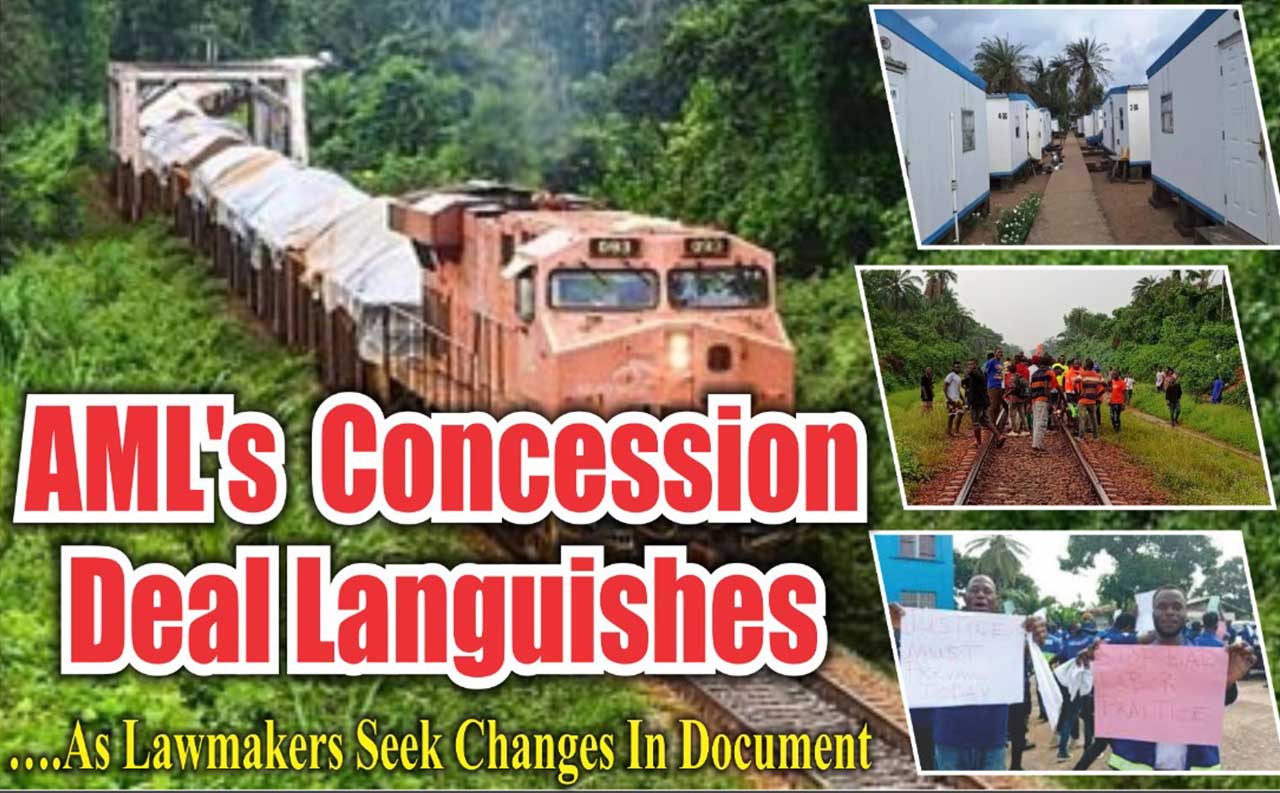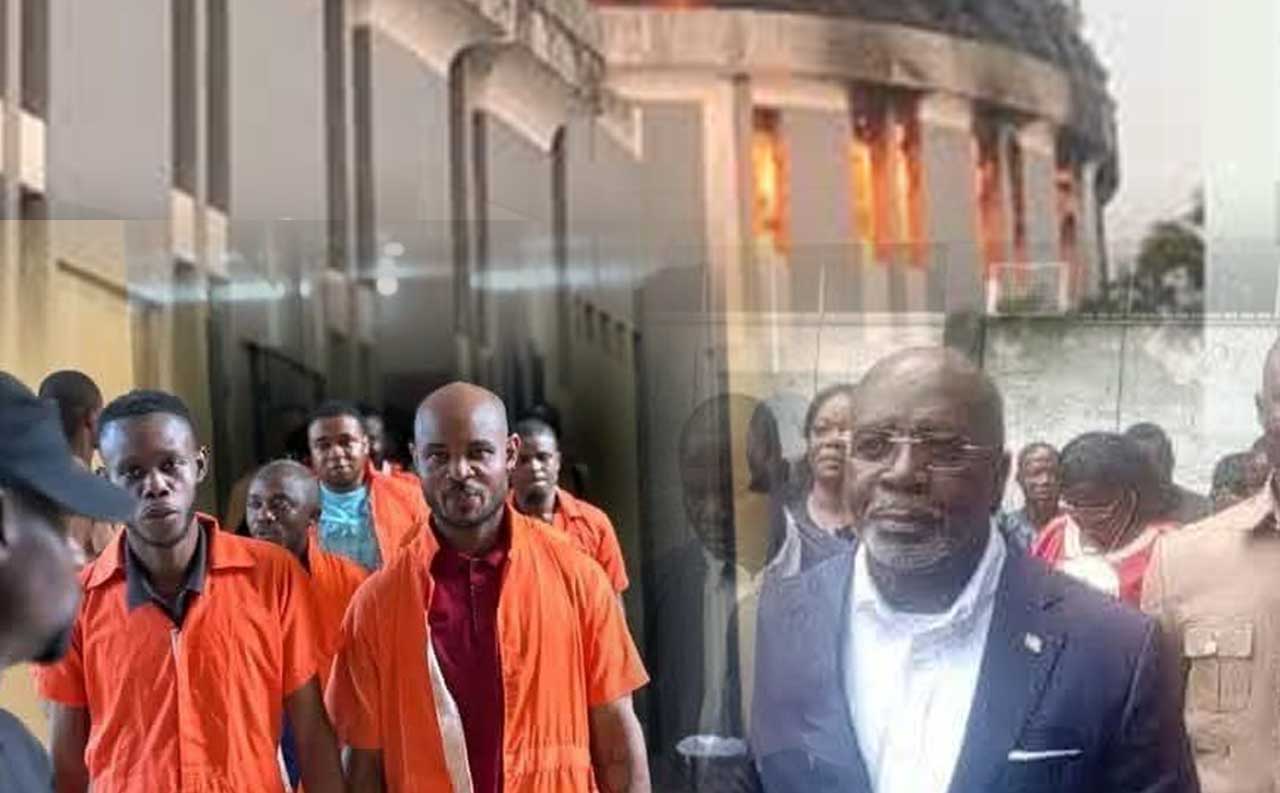The ratification of a 25 year renewal of ArcelorMittal Liberia’s (AML) concession agreement is said to be facing serious setback as the document languishes with the Inter-Ministerial Concession Committee (IMCC) in the wake of some lawmakers insisting that the proposed amendment be revisited before the deal is renewed. This, the lawmakers believe would protect Liberia’s interest and its sovereignty. Since the amended agreement was rejected for renewal in 2023 by a joint legislative committee of the 54th Legislature, there has been controversy among members of the 55th Legislature over the deal.
As it stands, the concession agreement is yet to reach the chambers of the Senate or the House of Representatives of the 55th Legislature due to its amended contents by AML, for which it remains with the IMCC, sources told this paper.
Lawmakers familiar with concession agreement, who prefer to be anonymous, disclosed that the proposed ArcelorMittal Liberia’s (AML) amendment contains a “shall prevail” clause which indicates that if any law, regulation, or concession conflicts with AML’s rights, the AML agreement prevails, a content, he said, is not in the interest of Liberia.
“There is no language ensuring that Mineral Development Agreement amendment supremacy is subject to the Constitution and the laws of Liberia. It is one thing to say that failure to honor any contract rights granted AML would entitle it to contract remedies such as any damages proved to have been incurred It is a different and unconstitutional approach to grant a private company’s contract rights superiority over future Liberian laws,’’ they frown .
The lawmakers observed that once ratified, that wording would give a private company’s contract the force of national law, thus allowing it to override legislation such as the anticipated National Rail Authority Act and the existing Public Procurement and Concessions Act as well as other laws in the national interest for development of a fair independently operated multiuser rail and port system.
According to our sources, such a clause would undermine the principle of legislative supremacy mandated by the Constitution of Liberia, shifting ultimate authority over the rail and port system from the Liberian state to a private entity. “It effectively replaces the normal hierarchy of law, where the Legislature and the Courts sit at the top, with corporate self-regulation written into statute. This would weaken the Government’s ability to pass or enforce future laws on public infrastructure, taxation, or competition; eroding Liberia’s sovereignty over its own assets leading to another prolonged period of monopoly and stifled investments in Liberia by parties other than AML as has been the case for the past two decades since 2005,” the sources warned.
The Government of Liberia is said to have established the National Rail Authority (NRA) to regulate and oversee Liberia’s rail assets and to guarantee independent, multi-user access to all qualified users. Accordingly, the lawmakers noted that the NRA is part of President Boakai’s ARREST Agenda and that the AML’s amendment conflicts directly with that policy: They continue by saying “It preserves AML’s operational control of the Yekepa–Buchanan railway well beyond 2030, tying the handover to an independent operator to rail traffic volumes that AML itself can influence or control, and allows AML to automatically re-assume operatorship if the independent operator’s appointment ends.” In effect, the lawmakers explained that the amendment would nullify the Government’s multi-user policy and the core purpose of the NRA, an independent operator model open to all users on fair and transparent terms.
They stressed that the Concession Law and possible agreements with other investors will be undermine because “Under Liberia’s legal framework, each major infrastructure project operates under a ratified concession approved by the Legislature. Concession and Access Agreements to any infrastructure for third-party users should remain fully consistent with Liberian concession law: They must respect the Constitution, the Concessions Act, and the intended NRA Act.”
As they provided justifications on why AML’s amendments should not be considered in its current form, these were their separate words: “Ratifying AML’s version would therefore create two legal environments – one under the National Rail Authority and another under AML – with AML’s framework claiming to override the national system. This would deter investment, invite legal disputes, and undermine confidence in Liberia’s concession governance.”
On the issue of the Buchanan Iron Ore Port, they maintained that the Government of Liberia remains the owner and should not be seconded to AML or allow the concessionaire to develop the railroad system operating principles and develop the multi user rail agreement without any input from other users because allowing this to happen, the Liberian government will be denied of having a say in the future as to how the railroad is operated.
Overall Implications
According to legislative sources, the AML amendment, as drafted, is incompatible with Liberia’s legal order and the President’s declared policy direction as it would weaken sovereign control over national infrastructure; undermine the authority and independence of the Government and the NRA and breach the Government’s public commitment to an independent, multi-user system.
Additionally, the sources warned that if the amended concession deal is ratified, it would create legal uncertainty across all existing and future concessions; and destroy the investment climate.



